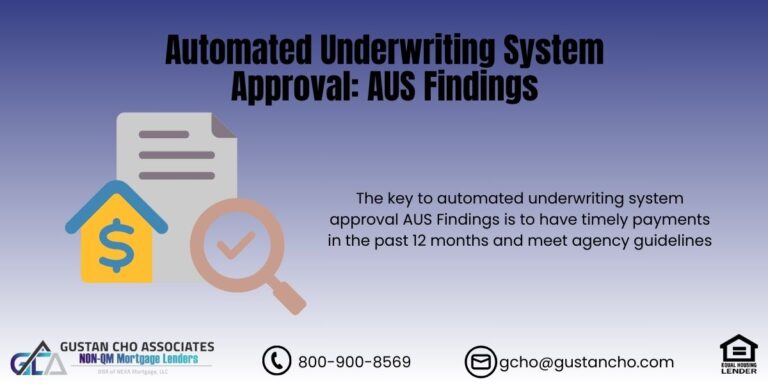Getting a Mortgage After a Divorce
Getting a mortgage after a divorce is inevitable. One person will be awarded the house. The person who is awarded the house will want to have the mortgage just under their name. The same goes for the ex-spouse who has relinquished their rights to the home.
They will not want to have any liabilities because the homeowner did not pay their mortgage payment or if the house were to foreclose. The best way to accomplish getting one person’s name off the mortgage is by refinancing.
Does Divorce Affect Getting Approved For a Mortgage?
There are so many outcomes from a divorce and how to divide the assets. It can be by cash buyout by the spouse awarded getting a cash-out to refinance if the house has enough equity.
Another solution can be selling the house and each spouse buying their own home. Regardless, getting a mortgage after a divorce is imminent. Not if it is but when. In the following paragraphs, we will discuss options for getting a mortgage after a divorce.
How Can I Afford a House Payment After a Divorce?
Most of us never expect to go through a divorce when we are getting married, as we always tend to believe that we will spend the rest of our lives with our partners. And so, it makes sense when most of us don’t plan our mortgages, or any other loans, around such an eventuality. Just because you were awarded the house is half the battle. More importantly, can you afford the mortgage payment without your spouse is the key question that needed to be addressed?
How Is The House Split In a Divorce?
Now, divorcing when you still have a mortgage that each of you has signed is not easy, and, quite frankly, it can turn out to be a rather costly affair, especially if your break-up was acrimonious. So what happens to the house after a divorce? If one spouse gets awarded the house, what happens to the liability such as being on the mortgage of the spouse who did not get the house? A home buy out through a cash-out refinance is the most common way of settling on a home after a divorce.
So, what can you do if you find yourselves in this situation? Well, there are solutions, and that’s what we will focus on in this guide, so keep reading. Besides one spouse keeping the house, the home can be sold and each spouse can get their own individual home.
Mortgage Options To Buy Out The Ex-Spouse
Divorce is a difficult and stressful process, especially when it comes to splitting assets and, at times, custody battles for the children. Talking of assets, we are also referring to all the marital assets, including the family home, which in many cases has an active mortgage.
In a divorce process, the presence of a mortgage that both partners signed complicates matters further. And when splitting the assets, you have to consider what’s going to happen with the loan. Now, in this case, you have several options. In the next several subparagraphs we will cover getting a mortgage after a divorce and other options for both ex-spouses.
Getting a Mortgage After a Divorce By Refinancing
Refinancing the mortgage – many couples usually take out joint mortgages. When such a couple divorces, they may decide to refinance the mortgage, this time putting it under one name, effectively relieving one partner of the responsibility for the mortgage. This means that one partner is now responsible for the mortgage.
The house’s title also ought to be transferred to the same partner. Otherwise, the other partner may still benefit from a possible sale of the home. Basically, the refinance is used to clear the outstanding mortgage – the one you acquired jointly – and then you use the rest of the money to pay the other partner their share of the home sale. This ensures that you become the legal owner of the family home.
How Does a Refinance For Divorce Work?
Refinancing after a divorce is highly recommended if both spouses are on the mortgage note. The person awarded the house would refinance without the ex-spouse. This will also help the ex-spouse buy another house and not incur any liabilities on the home they are exiting.
With that said, the criteria for refinancing are as follows:
- A decent credit score of at least 620 FICO if you are to take a conventional loan.
- To get approve/eligible per the automated underwriting system on government and conventional loans, you need to have been timely for the past 12 on all of your payments.
- But if you are taking an FHA, VA, or a Non-QM loan, your credit score can be as low as 500 FICO.
- A maximum loan-to-value ratio of about 97.75% for FHA loans and 97% for the conventional loans
- Non-QM and Jumbo loans will cap loan to value at 80% LTV
- Debt-to-income ratio caps are set by the agency guidelines of the mortgage loan program.
When you jointly applied for a mortgage, most likely, two income streams contributed to its payment. The best mortgage program for borrowers with high debt-to-income ratios is FHA loans. The maximum front-end debt-to-income ratio for FHA loans is 46.9% and the maximum back end debt to income ratio is capped at 56.9%
Getting a Mortgage After a Divorce With Only One Wage Earner
After the divorce, only one income stream remains, and it probably won’t be enough to meet the mortgage requirements. In addition, any jointly owned savings will need to be divided, and so are any debts available. So, now that you have a decreased income, savings, and a personal debt load, it might make it difficult to acquire a mortgage.
Selling Your Home and Getting a Mortgage After a Divorce to Buy a New House
Selling your home – this is an option that’s always on the table and is, in fact, the easiest. In a divorce, there is a lot that’s usually at stake, and you may have disagreements regarding the actual value of the home, or both of you just want to have a fresh start; then, in that case, selling the house is the best option.
Is It Better To Sell Before or After a Divorce?
With this option, you need to sell the family home, clear any mortgage balance they may have, and then split the profits.
This is the best option if neither partner meets refinancing requirements and doesn’t have any other choice other than selling the house. You may choose to sell the house before or after the divorce proceedings.
Removing Ex-Spouse’s Name From the Mortgage and The Deed
Removing your ex’s name from the mortgage and the deed can easily be done. In many cases, refinancing is usually the only way to remove your ex’s name from the mortgage.
There is also a way to remove the name without necessarily having to refinance – go to the lender with copies of the divorce decree and a properly executed and filed quitclaim deed and simply request for mortgage transfer. This process, where one partner’s name is taken off the mortgage, can be referred to as a mortgage assumption.
Can You Remove a Spouse After a Divorce?
Generally, lenders aren’t required to grant assumptions; however, should they agree to it, certain conditions may apply. Yes, the ex’s name will be removed from the mortgage, but should the partner keeping the property default on the mortgage, even the partner relinquishing the interest to the home may still be held liable, and that means even their credit score may be affected. There are cases where the lender may remove liability from the ex, but generally speaking, the lenders are very reluctant to do so.
How Will My Taxes Be Affect After Divorce?
Tax implications – when you decide to sell your home or buy out the ex’s share of the home, it is very possible that capital gains tax might come into play. This is the tax charged on gains from an asset sale. The tax, however, applies only to primary residences that you have lived in for at least three to five years.
If the property has depreciated, you may not want to take it, and if you do, make sure to make some improvements to boost its value before you sell it. In addition, if you are paying alimony, you need to know that tax considerations regarding the payments might affect your ability to qualify for a refinance. The higher the alimony paid, the higher the amount deducted from the taxable income, and the less you will have for mortgage payments.
How Is Home Equity Split in a Divorce?
During the negotiation stage of a divorce, evaluating the home’s equity is going to be the task that determines its value. Most of us may think that the only way to truly know the value of a property is by selling it and calculating its equity.
But there is another way to do this – get a professional appraisal. If you find that you do not agree on the true value of the property with your divorcing partner, it could be problematic and could make matters worse. So, plan to have the property appraised so that you can come up with a better plan on the amount to split with your ex, excluding the mortgage payment.
What Happens To Your Credit In a Divorce?
Protect your credit – divorce is a very emotional and stressful process, and oftentimes, one or both spouses are super angry with each other. This makes them want to take revenge on the other partner. One way they do that is by sabotaging their credit scores by blaming each other for problems and refusing to make mortgage payments, bills, or other debts associated with their joint accounts. This could damage one’s credit score, which could mean getting a mortgage after the divorce could be very challenging for them. So, you have to ensure that you take care of your credit score and, if possible, close the joint account and open individual accounts.
Remember that you might still need a mortgage after the divorce! And yes, you can get a mortgage even after you get divorced! The mortgage requirements that apply to other borrowers will still apply to you. You just need to maintain a decent score of at least 500 FICO if you are to qualify for Non-QM or FHA loans and at least 620 FICO to qualify for conventional loans. Also, maintain a decent DTI, and have a reliable income source.
Track Your Joint Accounts Going Forward
The most important in all this is that before you make any decision with regard to your home or mortgage in a divorce, you need to have the right people around you guiding you throughout the process. Divorce may sometimes feel like it is the end of the world, but there is life after the storm passes. And all this will certainly pass.
Ask for help from the professionals, such as a good attorney, a great mortgage broker, and a qualified financial planner. With the right hands, it will make this difficult process smoother and easier.
If you have any questions about this guide on getting a mortgage after a divorce, please contact us at Non-QM Mortgage Lenders at 262-716-8151 of us for a faster response. Or email us at gcho@gustancho.com. The team at Non-QM Mortgage Lenders is available 7 days a week, evenings, weekends, and holidays.







